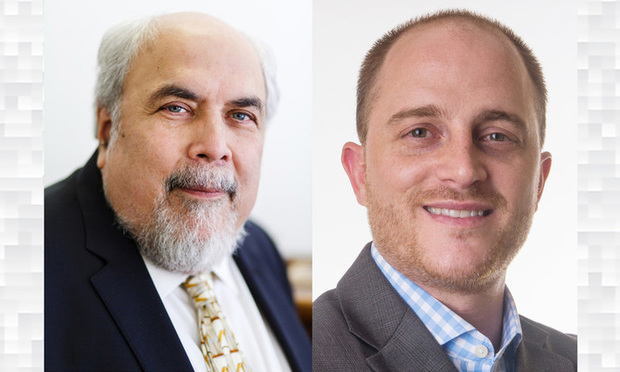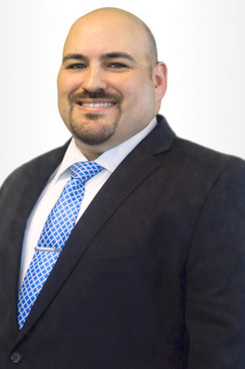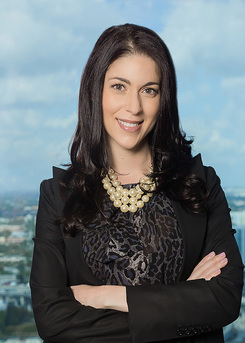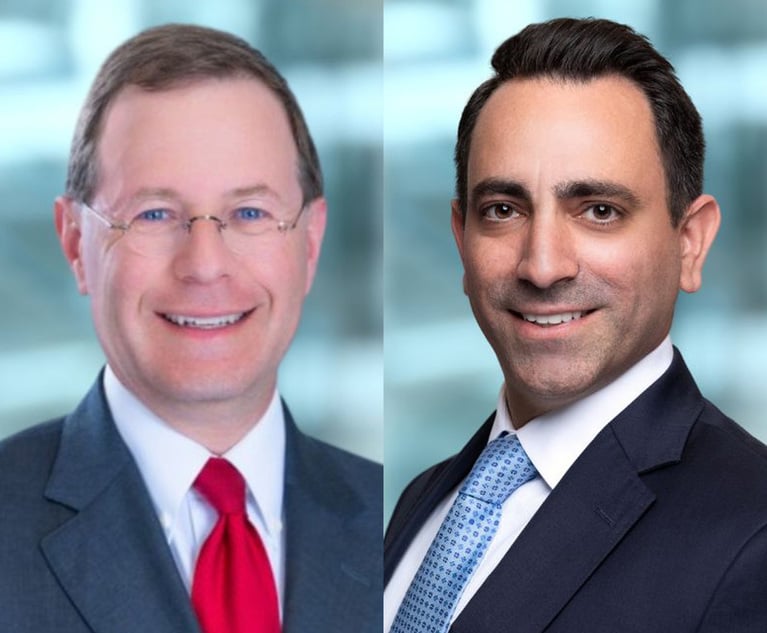Florida's Serial ADA Lawsuits: Long Overdue or 'Legal Extortion'?
Florida has become a top spot for lawsuits under Title III of the Americans with Disabilities Act — a sore spot for lawyers on each side. While plaintiffs say they're "frustrated" at a widespread lack of compliance, defendants feel they're "sitting ducks," unfairly targeted by what some say is "legal extortion."
November 01, 2018 at 10:04 AM
9 minute read
 Solo practitioner David Ferleger, left, and Brett Trembly, right, of Trembly Law Firm, Miami. Courtesy photos.
Solo practitioner David Ferleger, left, and Brett Trembly, right, of Trembly Law Firm, Miami. Courtesy photos.
Title III of the Americans with Disabilities Act (ADA) was enacted more than two decades ago to curb discrimination against disabled people, but related lawsuits are still rife in Florida — and lawyers on either side are exasperated.
Plaintiffs attorneys can't believe how many public places aren't compliant, while defense lawyers are at their wits' end with seemingly infinite “drive-by” complaints, suspicious of filers' motives.
 Related story: Fla. Lawyers Driving Boom in N.J. Disabled-Access Suits
Related story: Fla. Lawyers Driving Boom in N.J. Disabled-Access Suits
According to defense attorney Christian E. Rodriguez of the Trembly Law Firm in Miami, the ADA is “well-intentioned” but has become a “tool for abuse,” allowing some to “take advantage” of business owners.
But plaintiffs lawyers like David Ferleger in Pennsylvania disagree.
“If the plaintiff was objecting to someone refusing to rent to them because they're African-American and they tried to sue different real estate agents, I think nobody would object to their filing lawsuits,” Ferleger said. “Somehow, this raises a flag that shouldn't be raised for plaintiffs with disabilities.”
That flag, for some defense attorneys, flaps in the wind when a single ADA plaintiff morphs into a into serial suer, filing dozens of simultaneous complaints against multiple entities across the state.
“On [any] given day, you'll see the same plaintiff has filed 10 or more of these lawsuits against different municipalities,” said ADA defense lawyer Anastasia Protopapadakis of GrayRobinson in Miami. “It's not unusual to see copy-paste form complaints that, hopefully they've gone through and changed the name of the defendant, but sometimes they forget.”
Ferleger has represented Floridian plaintiffs whose names have become synonymous with ADA lawsuits. One of them, Juan Carlos Gil, a legally blind Miami resident with cerebral palsy, was the man behind a historic website-accessibility case against Winn-Dixie Stores Inc., which opened the floodgates to hundreds more like it.
Read Gil's complaint against Winn-Dixie
Gil has also sued Burger King, Godiva, and expresso machine producer Nespresso over similar lack-of-access claims. According to electronic court records, Gil is a plaintiff in at least 69 federal cases.
“We can't blame people who are denied access to public accommodations on account of a disability for being frustrated and even angry that, decades after the ADA was passed, they still can't get in the store,” Ferleger said. “They still can't get into the restaurant.”
 Burger King logo.
Burger King logo.Click to read Gil's complaints against Burger King, Godiva and Nespresso
One Florida plaintiff, Anna Marie DeFeo, has logged 154 lawsuits, according to electronic records. Her lawyer, Alberto R. Leal of the Leal Law Firm in Wellington, did not respond to requests for comment before deadline.
Attorney Fees Are a Factor
Title III doesn't allow Florida plaintiffs to claim damages — only attorney fees and an injunction — which, according to Ferleger, is a “deterrent.” Occasionally, when he tells prospective clients about the “no damages” disclaimer, Ferleger says “they hang up the phone or they never call back.”
“They have a right to want damages,” Ferleger said, but with that off the table, the remaining plaintiffs are “generally sincere people who really want change.”
 Christian Rodriguez.
Christian Rodriguez.From Rodriguez's perspective, it's “hard to agree” that some cases are filed strictly for “public good.”
“For filing the complaint, they already ask you for $12,000 in fees, when it's the same complaint that they've filed in all these other cases,” Rodriguez said. “The ADA is a well-intentioned law, but it's being abused by these serial plaintiffs.”
Rodriguez claimed he gets suspicious when some plaintiffs “will not be willing to share” time sheets for attorney fees or invoice for hired experts.
According to Trembly Law Firm founder Brett Trembly, “unfair demands for excessive attorney fees” are akin to ”legal extortion.”
“We don't believe that the plaintiffs are getting nothing out of this arrangement,” Trembly said. ”We can't prove this, but it's our opinion that there's potential fee sharing between plaintiffs attorneys and plaintiffs, because it wouldn't make sense otherwise.”
According to Trembly, plaintiffs law firms are “requesting thousands of dollars for not very much work,” so he wants to see more provisions in place to “protect” business owners.
“These plaintiffs firms will say, 'We don't have to drive around looking for buildings. We'll just go on Google Maps, and if we see a pool and we don't see a lift that would help somebody in a wheelchair in and out, we're going to file suit,'” said Trembly.
According to plaintiffs lawyer Ferleger, “there is no reason not to” provide time records and expenses documentation.
“I do not know of and have not heard of cases in which lawyers shared fees with clients in ADA cases,” Ferleger said.
'The only way'
 Wheelchair ramp. Photo: taewafeel/Shutterstock.com
Wheelchair ramp. Photo: taewafeel/Shutterstock.comMany of the lawsuits are short-lived, settled confidentially. According to Scott R. Dinin, Gil's Miami lawyer, that's usually at the defendant's request.
“We don't seek confidentiality,” Dinin said. “No one's trying to get anything from them.”
Dinin has also represented Andres Gomez,a legally blind man, who has sued the Miami Heat, cruise company Carnival Corp., Claire's Stores Inc. the Kardashians' Dash clothing boutique in Miami and countless others. According to electronic court files, Gomez is a plaintiff in at least 72 cases.
“Let's not leave people behind,” said Dinin, who approaches ADA cases from “a civil rights perspective.”
Dinin sees serial plaintiffs like Gil and Gomez as “heroes” and admits he was once “ignorant” about ADA rights before he got to know people with disabilities.
“I had no idea,” Dinin said. “One little traffic accident or one genetic defect, you lose your vision. Then what do you do?”
Dinin also represented Denver resident Mark Lasser, who sued the producers of hit musical Hamilton over its lack of audio description services. He said his clients try to end disputes before coming to him, but in many cases a lawsuit is “the only way.”
“Imagine you're in a wheelchair, you pull up to some ice cream store and there's stairs. What do you do? Spend a day and a half trying to figure out who owns the place and send them some nasty letter? You know where that letter's going. The trash can,” Dinin said.
According to Rodriguez, plaintiffs don't have to give notice to potential defendants before filing an ADA suit in Florida, which he said is “fundamentally unfair.”
“When we have clients come in, sometimes it's the first time they even realize that they have any exposure under the ADA,” Rodriguez said. “Just by filing the lawsuit, the plaintiffs have already created an exposure to a significant amount of fees.”
'Sitting ducks'
 Anastasia Protopapadakis, shareholder in GrayRobinson'
Anastasia Protopapadakis, shareholder in GrayRobinson's Miami office. Courtesy photo.
Defense lawyer Protopapadakis pointed out that, thanks to a recent ruling from the U.S. Court of Appeals for the Eleventh Circuit, her clients can sometimes be “sitting ducks,” hit with a second, third or fourth ADA lawsuit while the first is still pending.
“It does seem in that context to be abusive,” Protopapadakis said. “Because if the organization has made a commitment for accessibility, then they should be provided an opportunity to work through that, rather than continuing to dodge litigation.”
Protopapadakis said that all her clients “do a great job of being aware of the issue” and “constantly have it in the forefront of their mind,” but there's a remediation process to follow, which “is not quick.”
It's not cheap either, according to Protopapadakis, who said she's seen small and midsized companies avoid having a website altogether out of fear they'll violate the ADA.
“It becomes a cost-benefit analysis,” she said. “Are there enough sales being generated from the website that make it worth their while to keep a website in place and be open to liability, or should they just close the website down and just rely on good old-fashioned brick-and-mortar retail sales?”
Ferleger admitted, ”there are unethical individuals, both lawyers and plaintiffs, who are filing lawsuits that either have no merit or little merit, and they're not doing it because of a sincere desire to improve the lives of people with disabilities.”
In those cases, Ferleger said, judges “can and have” forbid certain people from filing lawsuits.
An Arizona judge, for instance, suspended ADA attorney Peter Strojnik in July while investigators look into allegations he paid serial plaintiffs $350 per case. He filed 2,000 ADA lawsuits for controversial group Advocates for Individuals with Disabilities.
The way Ferleger sees it, introducing damages in Florida's Title III cases might actually decrease the number of abuses.
“That may seem counterintuitive,” Ferleger said. “But it would provide an incentive for public accommodations to comply with the law without waiting to be sued.”
Related story:
Winn-Dixie Urges Court to Reverse Landmark ADA Website Ruling
This content has been archived. It is available through our partners, LexisNexis® and Bloomberg Law.
To view this content, please continue to their sites.
Not a Lexis Subscriber?
Subscribe Now
Not a Bloomberg Law Subscriber?
Subscribe Now
NOT FOR REPRINT
© 2025 ALM Global, LLC, All Rights Reserved. Request academic re-use from www.copyright.com. All other uses, submit a request to [email protected]. For more information visit Asset & Logo Licensing.
You Might Like
View All

Top Governor's Office Executives Drafted Letters Threatening Florida TV Stations Over Abortion Ads
3 minute read
GC of Florida State Agency Steps Down After Threatening TV Stations That Aired Abortion-Rights Ad

Eleventh Circuit Rules for Moms for Liberty in Free Speech Case Against School Board
4 minute readTrending Stories
- 1Supreme Court Considers Reviving Lawsuit Over Fatal Traffic Stop Shooting
- 2Long Hours and Lack Of Boundaries: Associates In India Are Leaving Their Firms
- 3Goodwin Procter Relocates to Renewable-Powered Office in San Francisco’s Financial District
- 4'Didn't Notice Patient Wasn't Breathing': $13.7M Verdict Against Anesthesiologists
- 5'Astronomical' Interest Rates: $1B Settlement to Resolve Allegations of 'Predatory' Lending Cancels $534M in Small-Business Debts
Who Got The Work
J. Brugh Lower of Gibbons has entered an appearance for industrial equipment supplier Devco Corporation in a pending trademark infringement lawsuit. The suit, accusing the defendant of selling knock-off Graco products, was filed Dec. 18 in New Jersey District Court by Rivkin Radler on behalf of Graco Inc. and Graco Minnesota. The case, assigned to U.S. District Judge Zahid N. Quraishi, is 3:24-cv-11294, Graco Inc. et al v. Devco Corporation.
Who Got The Work
Rebecca Maller-Stein and Kent A. Yalowitz of Arnold & Porter Kaye Scholer have entered their appearances for Hanaco Venture Capital and its executives, Lior Prosor and David Frankel, in a pending securities lawsuit. The action, filed on Dec. 24 in New York Southern District Court by Zell, Aron & Co. on behalf of Goldeneye Advisors, accuses the defendants of negligently and fraudulently managing the plaintiff's $1 million investment. The case, assigned to U.S. District Judge Vernon S. Broderick, is 1:24-cv-09918, Goldeneye Advisors, LLC v. Hanaco Venture Capital, Ltd. et al.
Who Got The Work
Attorneys from A&O Shearman has stepped in as defense counsel for Toronto-Dominion Bank and other defendants in a pending securities class action. The suit, filed Dec. 11 in New York Southern District Court by Bleichmar Fonti & Auld, accuses the defendants of concealing the bank's 'pervasive' deficiencies in regards to its compliance with the Bank Secrecy Act and the quality of its anti-money laundering controls. The case, assigned to U.S. District Judge Arun Subramanian, is 1:24-cv-09445, Gonzalez v. The Toronto-Dominion Bank et al.
Who Got The Work
Crown Castle International, a Pennsylvania company providing shared communications infrastructure, has turned to Luke D. Wolf of Gordon Rees Scully Mansukhani to fend off a pending breach-of-contract lawsuit. The court action, filed Nov. 25 in Michigan Eastern District Court by Hooper Hathaway PC on behalf of The Town Residences LLC, accuses Crown Castle of failing to transfer approximately $30,000 in utility payments from T-Mobile in breach of a roof-top lease and assignment agreement. The case, assigned to U.S. District Judge Susan K. Declercq, is 2:24-cv-13131, The Town Residences LLC v. T-Mobile US, Inc. et al.
Who Got The Work
Wilfred P. Coronato and Daniel M. Schwartz of McCarter & English have stepped in as defense counsel to Electrolux Home Products Inc. in a pending product liability lawsuit. The court action, filed Nov. 26 in New York Eastern District Court by Poulos Lopiccolo PC and Nagel Rice LLP on behalf of David Stern, alleges that the defendant's refrigerators’ drawers and shelving repeatedly break and fall apart within months after purchase. The case, assigned to U.S. District Judge Joan M. Azrack, is 2:24-cv-08204, Stern v. Electrolux Home Products, Inc.
Featured Firms
Law Offices of Gary Martin Hays & Associates, P.C.
(470) 294-1674
Law Offices of Mark E. Salomone
(857) 444-6468
Smith & Hassler
(713) 739-1250






